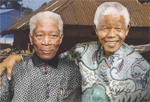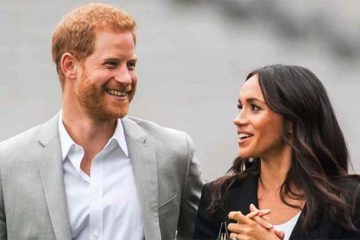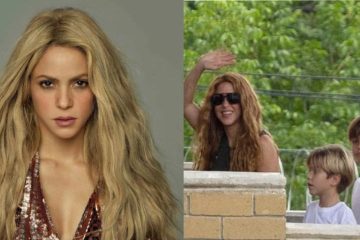 He led a life filled with drama, struggle and political triumph, so it comes as little surprise that Nelson Mandela – who passed away this week at the age of 95 – was one of the most portrayed global figures of the past 50 years.
He led a life filled with drama, struggle and political triumph, so it comes as little surprise that Nelson Mandela – who passed away this week at the age of 95 – was one of the most portrayed global figures of the past 50 years.
Actors including Danny Glover, Sidney Poitier and Morgan Freeman have all played the former president of South Africa on screen.
The most recent actor to take on the role is British star Idris Elba, who plays the lead in a film adaptation of Mandela’s autobiography “Long Walk To Freedom”.
News of the leader’s death was announced at the end of the film’s royal gala screening in London on Thursday.
The mission for all those actors, aside from capturing Mandela’s famous voice and mannerisms, has been to find the man beneath the popular image.
Peter Machen, the director of the Durban Film Festival, agrees it is a hard role to pull off, and goes beyond mere physical likeness.
“He was one of the icons of the 20th Century and you can only go so far with make-up and prosthetics. People are always going to see what is not there, rather than what is there with this particular performance.”
Arguably the most famous of the big screen portrayals of Mandela was Morgan Freeman’s Oscar-nominated performance in Clint Eastwood’s “Invictus”. The film told the story of Mandela’s attempts to unite the South African nation behind their national rugby union team, the Springboks, as the country prepared to host the 1995 World Cup. Rugby was seen by black South Africans as a “white Afrikaner sport” and at games they would support whichever team was playing South Africa. Before production, Mandela himself had apparently given his blessing to the casting of Freeman.
“I met him early on and told him that if it did come to pass, that this movie would be made, that I would need total access to him – to be able to look into his eyes and hold his hand. And he agreed.” said Freeman.
In 2012, it was the turn of another Oscar nominee, in the form of Terrence Howard, star of “Hustle & Flow”. He played a much younger Mandela in the 2011 film “Winnie” – which focused on Mandela’s former wife, played in this version by Jennifer Hudson. The Guardian called Howard’s performance “brooding, over-reaching”.
Similar criticisms were levelled at British actor David Harewood, who took on Mandela in the BBC Four drama “Mrs Mandela”, where he starred opposite the Bafta-nominated Sophie Okonedo.
American actor Dennis Haysbert starred opposite Joseph Fiennes in the drama “Goodbye Bafana” in 2007, a fictionalised story of the relationship beween Mandela and his prison guard. The film premiered at the Berlin Film Festival, where it was nominated for the Golden Bear, the festival’s top prize. Speaking to journalists at the time, Haysbert said “Every night I went home, I would have a glass of wine and just cry. The sacrifices he made were profoundly sad to me.”
Both Sidney Poitier and Michael Caine were in the running for a Golden Globe for their 1997 film “Mandela and de Klerk”.
Ten years earlier, Danny Glover took on the title role in a TV movie simply titled “Mandela” and was nominated for an Emmy the following year. That was still two years before Mandela’s release from prison.
Even before that, actor George Harris played Mandela in an episode of the BBC series “Prisoners of Conscience” in 1981. But the earliest known performance came from the little-known actor Simon Sabela; in 1966, he played Mandela in the German TV dramatisation of his 1963 Rivonia trial. Ultimately, Machen believes none of the films have so far captured Mandela. “They work dramatically and they work in terms of narrative,” he says. “But they don’t work in the ultimate sense of being completely convincing.”
-With BBC input



